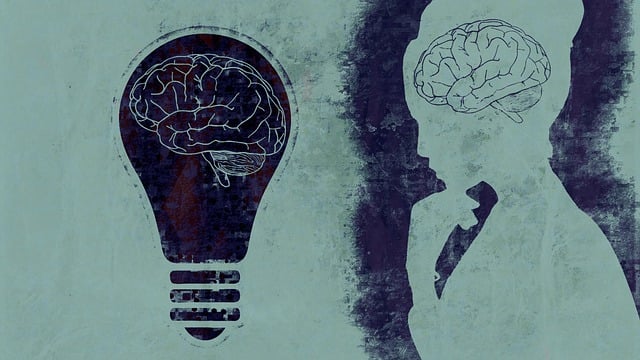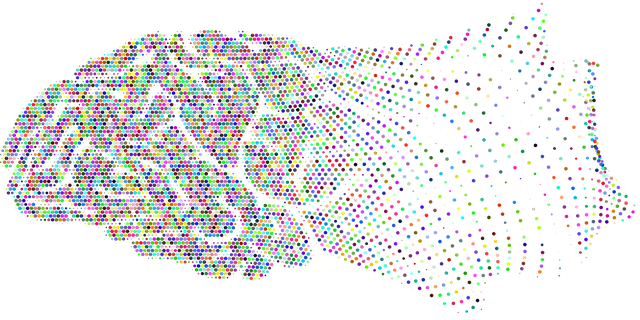Understanding Mental Health Data through methods like self-reported surveys and structured questionnaires (e.g., Lafayette Cognitive Processing Therapy) is key for promoting emotional well-being. Data preparation, analysis using advanced statistics, and qualitative techniques enable evidence-based practices, guiding treatment plans and Emotional Well-being Promotion Techniques. Integrating Mental Wellness Coaching Programs with continuous monitoring enhances data richness, leading to significant improvements in mental health outcomes, particularly through LCPT's focus on negative thought pattern modification.
Mental health data analysis is a powerful tool in understanding and improving individual well-being. With an increasing focus on digital interventions, effective collection and interpretation of data are essential. This article explores the process of analyzing mental health data through practical techniques, emphasizing the role of Lafayette Cognitive Processing Therapy (LCPT) as a therapeutic framework. We’ll discuss strategies for preparing and evaluating data, offering insights into how LCPT can be applied to interpret results and enhance treatment outcomes.
- Understanding Mental Health Data: Collection and Preparation
- Techniques for Effective Mental Health Data Analysis
- Interpreting Results: Applying Lafayette Cognitive Processing Therapy
Understanding Mental Health Data: Collection and Preparation

Understanding Mental Health Data is a critical first step in providing effective treatment and support for individuals’ emotional well-being promotion. The process begins with data collection, where various methods are employed to gather insights into a person’s mental state. This includes self-reported surveys, clinical interviews, and observations – tools that capture subjective experiences and behaviors indicative of mood management. For instance, Lafayette Cognitive Processing Therapy (LCPT) employs structured questionnaires to assess cognitive distortions and maladaptive thinking patterns, offering valuable data for tailoring therapy sessions.
Preparation of this data involves cleaning, organizing, and coding the collected information. It is during this phase that researchers and therapists ensure the accuracy and consistency of the data, removing any irrelevant or duplicate entries. Proper preparation facilitates a comprehensive analysis, enabling the identification of trends and patterns related to specific mental health conditions. This prepared data serves as a foundation for evidence-based practices, informing treatment plans and supporting the development of effective Emotional Well-being Promotion Techniques through Self-Awareness Exercises.
Techniques for Effective Mental Health Data Analysis

Effective mental health data analysis requires a multifaceted approach tailored to the specific needs and goals of each study. Techniques such as Lafayette Cognitive Processing Therapy (LCPT) offer valuable insights into cognitive patterns and their impact on mental wellness. LCPT involves identifying and challenging negative thought processes, which can lead to significant improvements in symptoms associated with anxiety and depression. By analyzing changes in cognitive responses over time, researchers can gain a deeper understanding of the therapeutic process and its effects on individuals’ mental health trajectories.
Additionally, integrating Mental Wellness Coaching Programs and focusing on key areas like Stress Management and Burnout Prevention enhances data analysis. These programs often employ structured assessments and regular monitoring to track progress. This continuous evaluation allows for precise identification of areas where interventions can be most effective. Advanced statistical methods, combined with qualitative analyses, enable researchers to uncover complex relationships within the data, ultimately informing evidence-based strategies for mental health support and development.
Interpreting Results: Applying Lafayette Cognitive Processing Therapy

Interpreting the results of mental health data is a critical step in implementing effective treatment strategies. When utilizing Lafayette Cognitive Processing Therapy (LCPT), professionals must carefully analyze patient progress and outcomes. This therapy approach focuses on identifying and modifying negative thought patterns, which makes it particularly valuable for addressing various mental health concerns. By assessing changes in cognitive processes, therapists can gauge the success of the intervention.
For instance, LCPT often involves tracking improvements in areas such as emotional regulation, self-efficacy, and trauma-related symptoms (if applicable). Healthcare providers skilled in this therapy ensure that data interpretation includes measuring the patient’s ability to manage stress, cope with triggers, and maintain a sense of confidence. This comprehensive approach, combined with Trauma Support Services and Healthcare Provider Cultural Competency Training, can lead to significant improvements and enhanced well-being for individuals seeking mental health support, ultimately fostering a more positive outlook and increased resilience.
Mental health data analysis is a powerful tool that can significantly enhance therapeutic outcomes. By understanding and interpreting collected data, professionals can tailor treatments like Lafayette Cognitive Processing Therapy (LCPT) more effectively. This approach not only improves patient care but also contributes to the broader field of mental health research, enabling better-informed strategies for managing and preventing psychological disorders. With continued advancements in data analysis techniques, the future of mental healthcare looks brighter, offering hope and improved quality of life for those seeking support.














